Why Regular Building Maintenance Matters — And How It Can Save You Thousands

Building maintenance might feel like an unnecessary expense, but regular upkeep is essential to prevent decay and costly deterioration. In fact, routine maintenance is almost always cheaper than major repairs later on.
Not only does a well-maintained property save you money, but it also helps your home retain its value and makes the sale of your property much less stressful.
Common Issues That Start Small but Cost Big
As chartered building surveyors, we regularly inspect homes with significant defects that could have been prevented by simple, cyclical maintenance. One of the most common culprits that we come across? A leaking rainwater gutter.
For just a few pounds and minutes of attention, you can repair a loose or blocked gutter. But left unchecked, it can lead to:
- Wet rot in eaves timbers
- Damp penetration inside the building
- Damage to plaster, paint, and internal finishes
Key Areas to Maintain
Here are the areas every homeowner should monitor:
🏠 Rainwater Goods
- Check gutters, downpipes, and gullies annually—or twice a year if you have nearby trees.
- Clear any blockages and ensure all joints are secure.
🧱 Roof Coverings
- Inspect pitched roofs once a year, and after major storms.
- Use binoculars to spot slipped or missing tiles or slates.
- Replace any defects promptly—especially on older roofs without under-felt.
🪟 External Joinery
- Inspect and redecorate every 5–7 years to prevent wet rot.
- Repaint south-westerly elevations more often due to harsher weather exposure.
🌧️ Damp-Proofing
- Ensure soil or flower beds aren’t bridging your damp-proof course.
- Keep sub-floor air vents clear—poor ventilation can lead to dry rot, which is costly to fix.
🧱 Walls and Pointing
- Look for cracks, spalling bricks, or worn pointing.
- Even if cracks aren’t structurally serious, they can let in water and should be addressed.
Safety First
Whenever you carry out maintenance, always prioritize safety:
- Work from stable platforms or scaffolding
- Wear appropriate personal protective equipment (PPE)
Consider hiring professionals for higher-risk tasks


